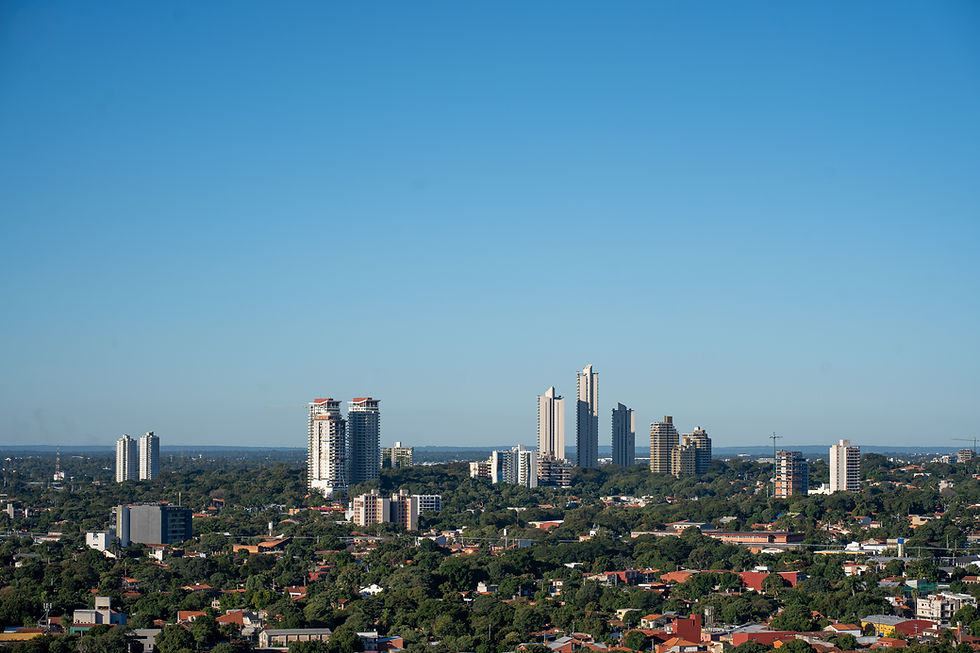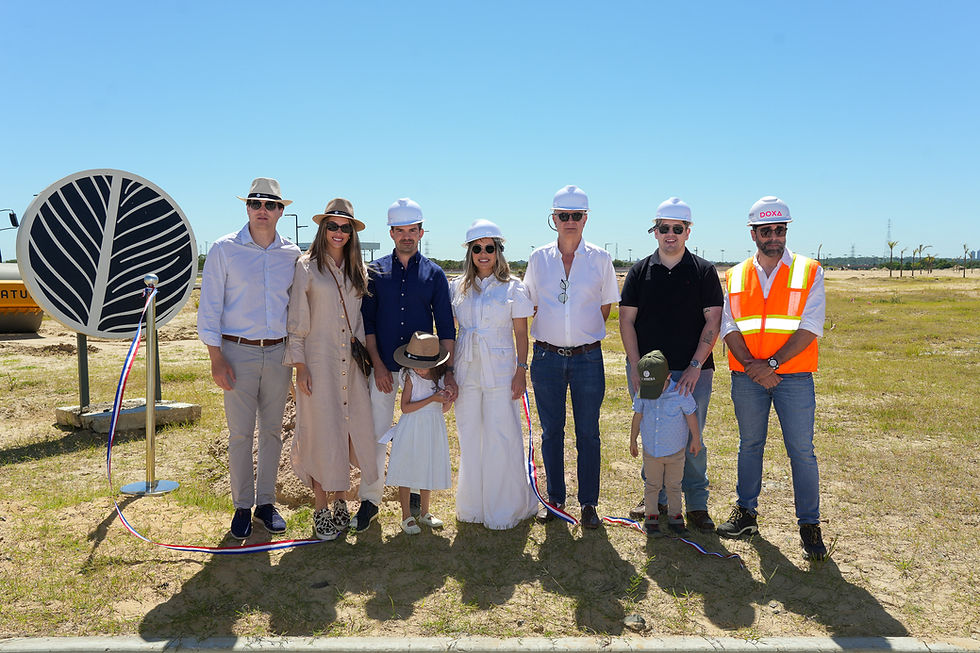The DGRP and CAPADEI formalize a strategic alliance to strengthen real estate registry management in Paraguay.
- Carlos E. Gimenez

- Sep 4, 2025
- 3 min read
Updated: Sep 16, 2025
The alliance seeks to modernize registry management by providing IT equipment, technical training, and creating more agile customer service channels, in a context of growing real estate demand and in anticipation of the future implementation of the Unified National Registry.

On Friday, August 29, a cooperation agreement was signed between the Supreme Court of Justice, through the General Directorate of Public Registries (DGRP), and the Paraguayan Chamber of Real Estate Developers (CAPADEI). The agreement was signed by the president, Dr. César M. Diesel Junghanns, and the minister, Dr. Alberto Martínez Simón, representing the highest court. The president, Engineer Raúl Constantino, and the secretary general, Engineer Enrique Strubing, represented the business association.
This agreement is part of a growing trend of public-private partnerships that seek to respond to the structural needs of key institutions for the country's urban and housing development. The experience with CAPADEI builds on previous cooperation with Itaipu, Yacyretá, and, more recently, with the Paraguayan Chamber of Land Development and Real Estate Companies (CAPELI), which marked the beginning of this type of joint work.
The Director of the Real Estate Registry of the General Directorate of Public Registries (DGRP) , Dr. Mercedes Vera, emphasized that the decision to open up to collaborative work with the private sector responded to the need to overcome the institution's historical limitations, especially in terms of IT infrastructure and trained human resources.
The expansion of the real estate market in Paraguay beginning in 2010 was the turning point that exposed the weaknesses of the land registry system. The entry into force of Law 3966, the Organic Law for Municipal Property, introduced specific provisions on subdivisions and the horizontal property regime, requiring each real estate unit to be registered in a computer system. This change coincided with the real estate boom, which resulted in a sustained increase in the demand for registrations, barely interrupted during the pandemic, and which is now resuming accelerated growth.
Faced with this situation, the DGRP identified that it lacked the technological equipment and personnel to process the growing volume of registrations for apartments, duplexes, triplexes, four-plexes, gated communities, private neighborhoods, and expanding residential developments. It was in this context that partnerships with business chambers became a viable alternative to guarantee the continuity and efficiency of the service.
The agreement with CAPADEI establishes reciprocal obligations. On the one hand, the developers provide computer equipment for the offices specializing in horizontal property, which currently operate with three divisions responsible for processing complexes subject to this regime. In return, the DGRP commits to streamlining registration procedures by providing more direct consultation channels and promoting cross-training between public officials and private sector technicians.
One of the most sensitive issues the agreement seeks to address is the modernization of the registry's computer system. The horizontal property office was one of the first to digitize its processes in the 1990s, but today it operates with a database model implemented in 1992, with notable limitations for current demands. Improving this platform is a priority, and cooperation with the private sector allows for the channeling of technical and operational support in this regard.
The agreement takes on even greater relevance considering the upcoming implementation of the National Unified Registry (RUN), which will involve the merger of the Cadastre and the Registry. This initiative aims to unify service centers, technical criteria, and computer processes, so that users—whether notaries, lawyers, developers, or surveyors—do not have to resort to multiple institutions to complete procedures. The RUN seeks to simplify processes, reduce time, and standardize requirements, in addition to integrating other complementary registries, such as those for legal entities, commerce, automobiles, livestock brands and markings, bankruptcy, family, and property relations.
The director of the Real Estate Registry, Dr. Mercedes Vera, emphasized that beyond CAPADEI's material contribution, the agreement represents moral and institutional support at a time when the DGRP faces the enormous challenge of transforming its structure in line with the RUN. "Listening to President Raúl Constantino and all the members of the board of directors gives us the strength to continue. It's not just about the equipment we receive, but also the support they provide us as a strategic sector, which encourages us to keep moving forward," she stated.
Ultimately, the partnership with CAPADEI consolidates a public-private cooperation model that is marking a new era in the management of the property registry in Paraguay. By providing concrete solutions to historical limitations, it opens the possibility of a more efficient and modern service, with a direct impact on developers, notaries, urban planning professionals, business owners, and, above all, on citizens seeking access to housing.


